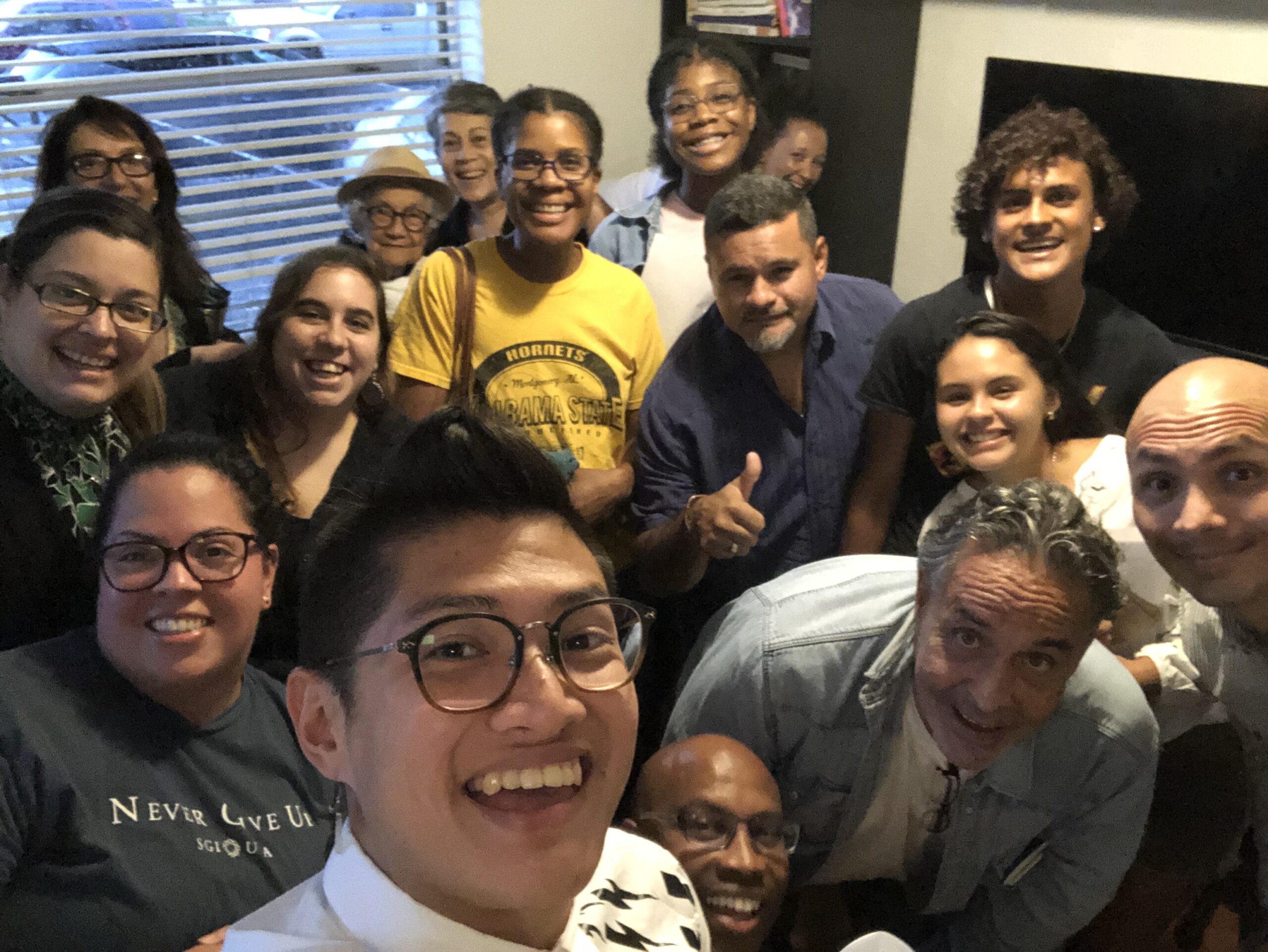(Photo above by Mary D’Elia)
Learn how Kyle Maharlika, of Florida, conquered his inner fear by believing in the Buddhability of others.
Surprisingly, my first major burnout came right after I spearheaded a near-total revamp of our software, which, as a tech company, was our primary product. At 24, I was the company’s chief technology officer and, following the successful revamp, I was praised as some kind of “hero.”
I’d oriented every aspect of my life toward the success of the revamp. Whatever needed doing, I did it. Exercise, meals, sleep and a meditation practice were all built into my schedule to maximize efficiency and sustain me at work.
After the revamp, after things calmed down, after the software was running smoothly, it wasn’t clear to me what I’d gained, other than high praise. In the calm after the flurry, I wondered: What was that all for? Isn’t there more to life? My meditation practice had carried me through many stressful moments, but when I arrived at a crossroads, unsure of life’s purpose, it produced no answers.
Throughout life, I’ve struggled to have courage. As a child, a simple “hello” from someone I didn’t know could prompt immediate tears. Eventually, I made friends but from a place of insecurity. I used self-deprecating humor to make others laugh. If I disagreed with something being done, I hid those feelings out of fear of losing friendship. If friends were discussing a show, book or game I’d never heard of, I pretended I had, afraid of being left out. At 24, I’d accomplished a lot, professionally speaking, but all of it, I was coming to realize, I’d accomplished out of a sense of fear.
The year of my great success, I went on a quest to explore my spirituality, searching for what I called “my best self”—without much luck. Until a woman I’d befriended a week prior responded to my social media post about a musician I liked.
“Do you practice Buddhism?” she wrote. I told her that I practiced meditation, to which she responded that she chanted Nam-myoho-renge-kyo. I skimmed the article again and realized it was the same Nichiren Buddhist practice the musician said fueled his creativity.
She invited me to a local SGI Buddhist meeting, and I went. Chanting for the first time, I felt uplifted, courageous and energized, like, Whoa, this is different than what I’ve been doing.
Chanting for the first time, I felt uplifted, courageous and energized, like, “Whoa, this is different than what I’ve been doing.”
I began to chant on my own and study the writings of Daisaku Ikeda. It was while reading The New Human Revolution that I came across examples of Ikeda’s deep care and love for people. Although I shared the same concern for people, when it came to supporting other youth to practice Buddhism, because of my low self-confidence, I would often hesitate and shutdown in difficult moments.
Should I say something? I’d wonder. Then: Who am I to tell them how to act? I sensed I was sidestepping something I had to confront, and that doing so was not only holding me back but the other youth as well.
The need to engage in constructive dialogues pushed me to confront my weaknesses. I was working with a few members of my team who routinely showed up late, or wouldn’t show up at all. I noticed for those with this pattern, it was clearly reflected in other areas of their lives and creating more unhappiness. I knew I had to be upfront but didn’t have the courage to do so.
Buddhism teaches that it is the intention, or my heart, that’s most important. Seriously chanting to help someone grow and believe in their Buddha nature, I was learning is the source of developing wisdom to communicate what needed to be said. If I didn’t base my actions on sincere chanting for the other person’s happiness, however, I’d be merely venting, only adding to their sadness.
I chanted a lot about this, trying to figure out if the words I wanted to say were coming from a place of anger or arrogance. Trying to apply Ikeda’s guidance and through chanting, I eventually gained the confidence to express concern in a way that was honest and compassionate. I decided to lead by example, taking full responsibility for my own life while frequently checking up on my guys and expressing care. What a difference this made! Those who struggled to follow through did a 180 and we all began to grow together.

Kyle with local SGI members at a neighborhood Buddhist meeting. Photo courtesy of Kyle Maharlika.
In my work life, I’ve also learned to compassionately challenge my employers and supervisors, providing direct and honest feedback instead of being a “yes man.” For me, work has become a place where I strive to create a space where everyone feels they matter and belong, where they can grow into their best selves. This has led to promotions and collaborations that would have been beyond the reach of my former self.
Above all, I see these as opportunities as a “signpost” of sorts, an example pointing the way for how I can engrave Ikeda’s compassion in my daily life.
